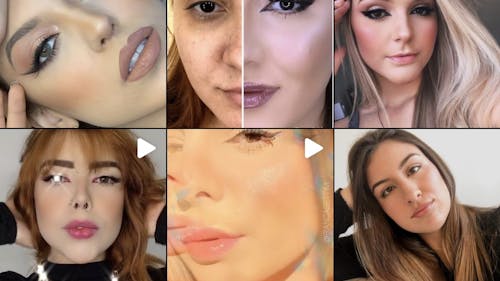New 'fox eye' makeup trend is actually just racist

The “fox eye” makeup look has been proliferating on social media, which, to non-Asian people, is just yet another beauty trend that people strive to master before their friends do. But to East Asians who have grown up in Western countries, the trend has stirred up scraps of often sealed and unhealed remembrances — being ridiculed and bullied for their natural eyes.
Made famous by celebrities such as Bella Hadid and Kendall Jenner, the fox eye look has been spread across Instagram, TikTok and YouTube by makeup artists and novices alike.
The point of the look is to lengthen the eye, using eyeshadow and eyeliner right along the upper lash line, and elongating up and out toward the temples, making eyes sleeker and more slanted upward, which resembles the natural eyes seen in East Asian features.
Asian communities were quick to call out the fox eye look as another example of Eurocentric mainstream culture cherry-picking ethnic features to look “cool," while still treating and viewing the ethnicity in question as to their inferiors.
This is similar to how predominantly white influencers have been adopting cornrows and box braids and even blackfishing. Not only do they steal hairstyles and fashion from Black people, but they also wear their skin color as a costume.
Looking back at Hollywood’s notorious history of racial masquerade sheds more light on why the fox eye look is racist. White Hollywood unabashedly employed blackface, redface and yellowface to impersonate and ridicule non-white ethnicities they perceived as Other.
In the case of yellowface, the studio makeup pros reshaped the facial features of white actress Katharine Hepburn by taping and stretching her eyes upward to portray East Asian-ness in 1944’s “Dragon Seed.”
The same method used in Hollywood is replicated in the fox eye look, which warrants people to shave off the tail ends of eyebrows to draw on an upward straight brow. Now, non-Asian people are choosing to change their eye shapes to the ones that have been deemed ugly and worth ridicule when seen in East Asians.
The destructive effect doesn’t end with the look itself. Along with the elongated, lifted eye look comes the pose where people put their fingers to their foreheads and pull back their eyes. This pose resurrects the exact racist slanted-eye gesture that has been socially recognized and universally utilized to mimic East Asian eyes.
In the athletic sphere, this racist gesture has been recurrently made by athletes when they have lost or won a game to East Asian countries. The latest report on FIFA’s punishment to yet another football player for making yet another slanted-eye gesture at a game in Hong Kong took place on Dec. 23, 2019.
Within the same month, a Michelin-starred Italian chef came under fire for posting a picture of his team posing the slanted eye gestures after being assigned to collaborate with a Chinese restaurant in a culinary competition. Within the same year, in May, a California-based DJ pulled the same gesture in poking fun at K-pop girl group Blackpink while playing their music in the background.
With more and more recent evidence piling up of people weaponizing the slant-eye stereotype to belittle East Asians, the objections of people who claim their innocence after making the pose along with their fox eye looks are as impotent as the apologies of those accomplished professionals who were indeed intentionally executing racist behaviors in the first place.
Against the backdrop of East Asians having been beaten, harassed, threatened, spit upon and yelled at ever since the start of the pandemic, the fox eye trend is another manifestation of already normalized racism against East Asians — thanks to the rampant use of terminology like “China virus” from President Donald J. Trump.
Apart from everything we all have been suffering from: the pandemic, the economy, the politics and climate change, East Asians have the global anti-Asian sentiments to navigate.
And on top of that, East Asians are forced to revisit and divulge their racial traumas caused by the dominant culture and people, put them into eloquent words in the hope that those who hurt them will listen and will learn to stop. Little did they expect to encounter indignation or tone policing in return, hearing “You are too sensitive,” or “A trend is just a trend, you are reaching too far.”
For my fellow East Asians, whoever is racked with pain, is feeling the need to hide, or is in the process of negotiating their insecurities about specific racial features, I hope you can find some comfort in the words I’m about to share.
It’s a line from an upcoming children’s book, "Eyes That Kiss in the Corners," written by Joanna Ho: “(East Asians) have eyes that kiss in the corners and glow like warm tea, crinkle into crescent moons and are filled with stories of the past and hope for the future.”



